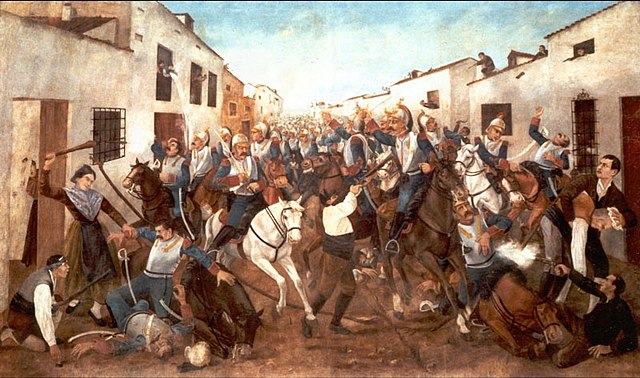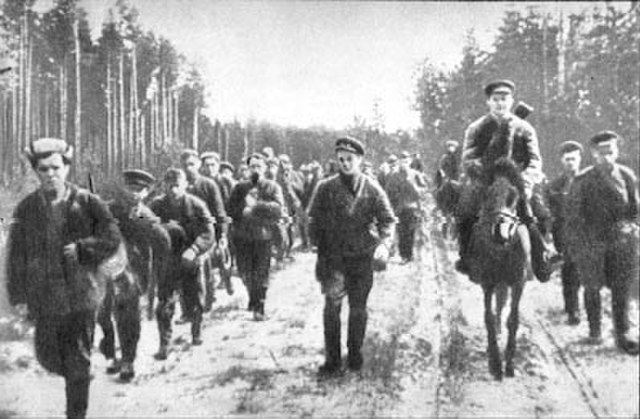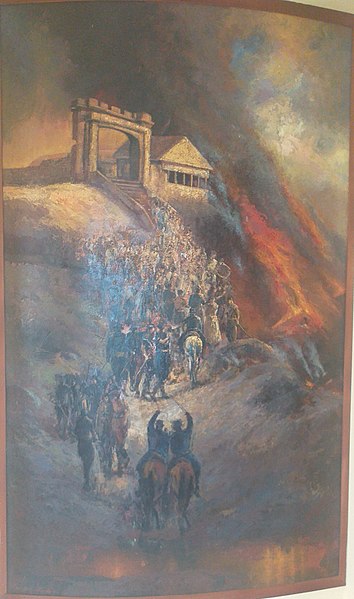Raiding, also known as depredation, is a military tactic or operational warfare "smash and grab" mission which has a specific purpose. Raiders do not capture and hold a location, but quickly retreat to a previous defended position before enemy forces can respond in a coordinated manner or formulate a counter-attack. Raiders must travel swiftly and are generally too lightly equipped and supported to be able to hold ground. A raiding group may consist of combatants specially trained in this tactic, such as commandos, or as a special mission assigned to any regular troops. Raids are often a standard tactic in irregular warfare, employed by warriors, guerrilla fighters or other irregular military forces. Some raids are large, for example the Sullivan Expedition.
British commandos watch as an ammunition dump burns during Operation Archery, Vågsøy 27 December 1941.
Guerrilla warfare is a form of unconventional warfare in which small groups of irregular military, such as rebels, partisans, paramilitary personnel or armed civilians including recruited children, use ambushes, sabotage, terrorism, raids, petty warfare or hit-and-run tactics in a rebellion, in a violent conflict, in a war or in a civil war to fight against regular military, police or rival insurgent forces.
Spanish guerrilla resistance to the Napoleonic French invasion of Spain at the Battle of Valdepeñas
Soviet partisans on the road in Belarus, 1944 counter-offensive
Siege of the Fortaleza San Luis by the Dominican rebels by Melanio Guzmán
Lakhdari, Drif, Bouhired and Bouali. Female Algerian guerillas of the Algerian War of Independence, c. 1956.





